One way to handle this “problem” is to repeat the poem several times – and/or to embed it into another song – as I did with my melody for “I never saw a moor” and Pachelbel’s Canon (for more on this, click HERE).
| Another way to handle the issue of short poems is just to write short song! My composition for “The Earth has many keys” clocks in at just under a minute and a half. Of course, one has to decide what type of song to write that is appropriate for the theme or mood of a given poem: Something upbeat and positive? Something slow and sad? Something mournful or something uplifting? Something inspirational or lighthearted? |
My first inclination – based on the first four lines of the poem – was to write something upbeat. After all, lines 1 and 4 state, “The Earth has many keys,” (sounds happy to me) and “Beauty is nature’s fact,” and lines 2 and 3 mention – albeit a bit awkwardly – “Where melody is not / Is the unknown peninsula.”
But then I read the final four lines, and I changed my mind from writing some sort of rosy, hopeful song to composing – **drum roll please** – an elegy! Afterall, there it was in line 8, the word “Elegy.”
I read the poem with a very modern perspective with a focus on climate change: As beautiful as our planet is, we are not doing enough to protect it; witness what is going on with our land and seas (lines 5 and 6) – and the sound of crickets – signifying our silent response to all the warning signs – is the Earth’s “utmost of Elegy, to me.”
I ended up with a slow and somber melody, and the song lasts all of about a minute and twenty-seconds. Oh, I also challenged myself to change keys when possible (since the first line is “The Earth has many keys”) – so not an easy task with such a short composition.
Short & Sweet continued:
One way to handle this issue is to repeat the poem several times – and/or to embed it into another song – as I did with my melody for “I never saw a moor” and Pachelbel’s Canon.
Another way to handle this is just to write short songs! The elegy I wrote for “The Earth has many keys” clocks in at just under a minute and a half.
A third way to deal with Dickinson’s shorter poems: combine them! That’s what I did with a song I wrote entitled “Wonderful Rotation.” The song focuses on two different poems by Dickinson: “Frequenlty the woods are pink” and “This slow day moved along.” The title for my song comes from the penultimate line of “Frequently the woods are pink.”
A fourth way to add a bit of “time” to a poem for a longer song is to repeat words, phrases or lines. Dickinson’s poem “Adrift! A little boat adrift!” is relatively short, and I added a bit to it by repeating the word “adrift” and by adding other repeating lines.
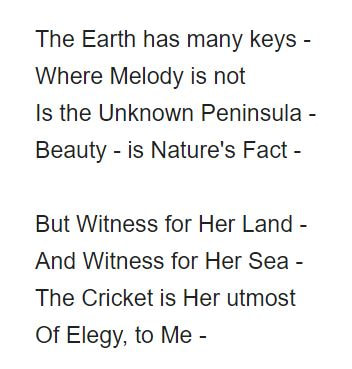
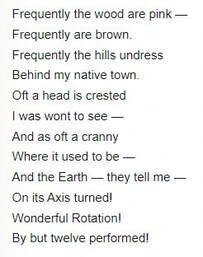
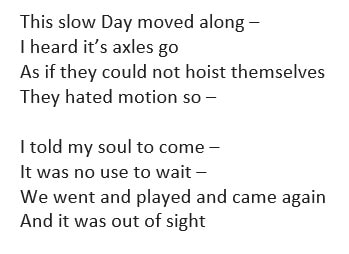
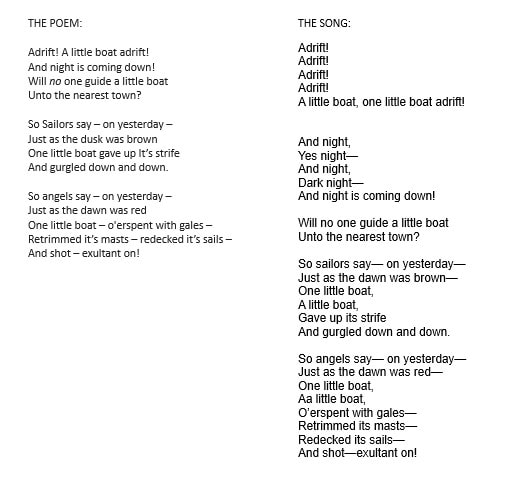
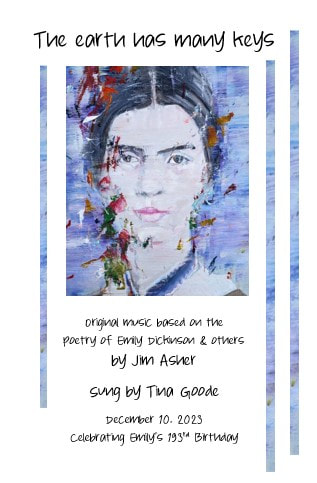
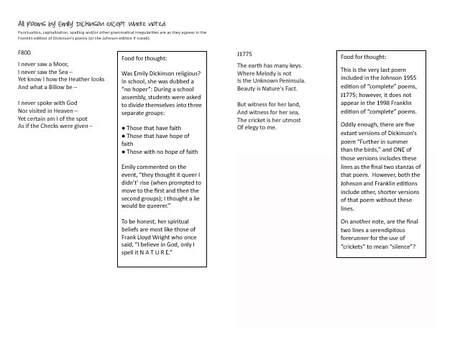
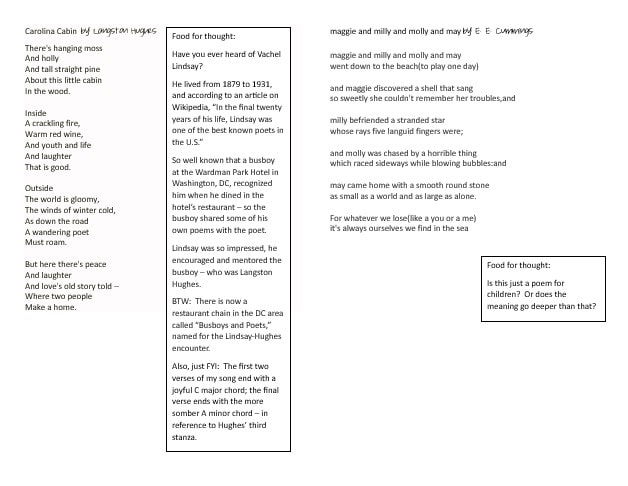
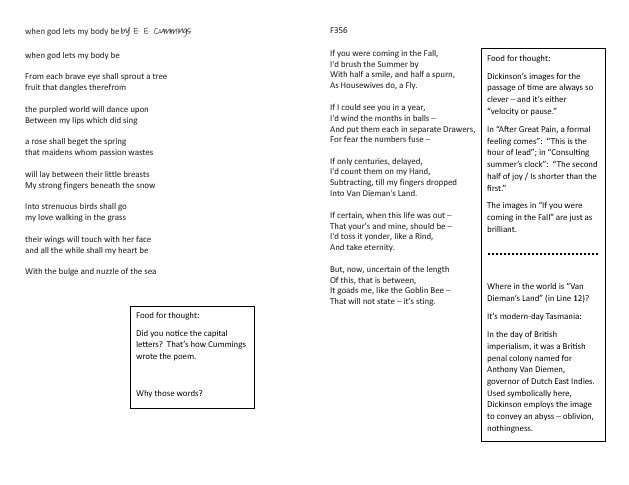
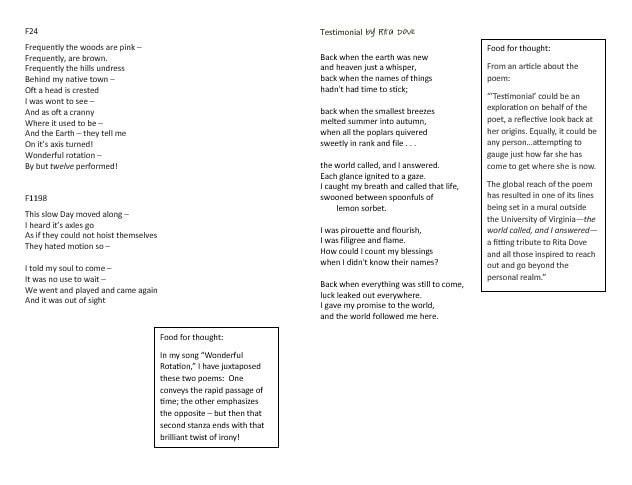
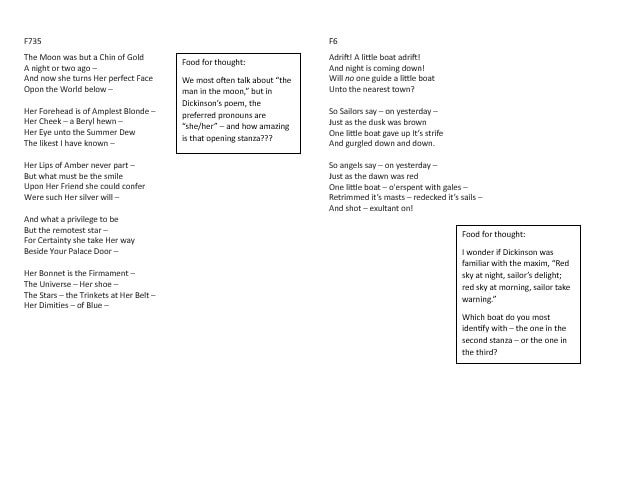
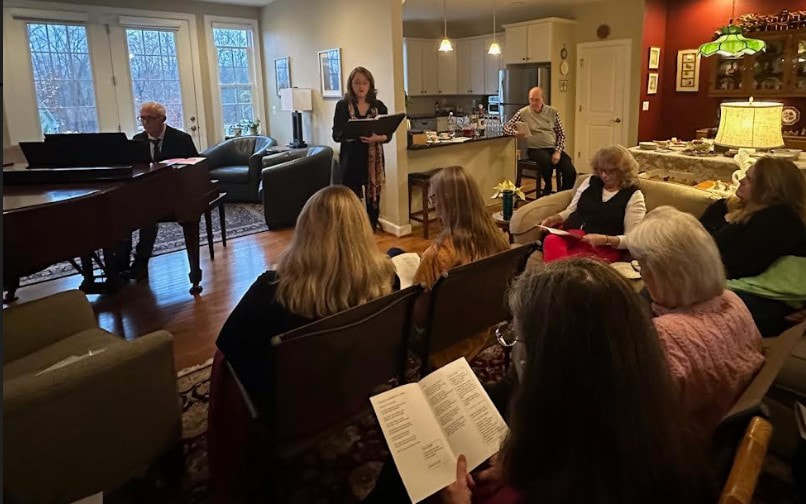
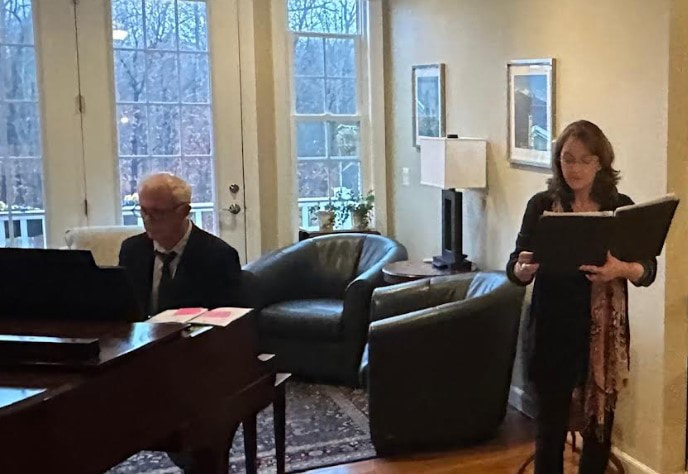
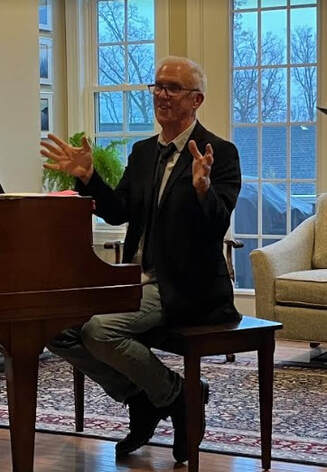
 RSS Feed
RSS Feed
